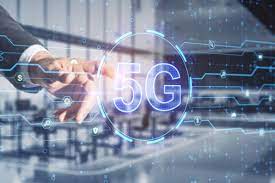Senegal’s progress towards the implementation of ultra-broadband technology has picked up speed as of late, particularly in light of the advent of 5G.
As a result of the COVID-19 epidemic, the country is making efforts to satisfy the growing demand for broadband access as well as the shifting patterns of digital content consumption.
It appears that the company that is now in the lead in this competition is Sonatel, which is a subsidiary of the well-known French telecom company Orange.
Sonatel’s impressive proposal of XOF34.5 billion ($59.1 million) won the deal after a thorough evaluation by Senegal’s telecommunications regulator, ARTP, following its application for 5G licence applications. Sonatel’s proposal prevailed over local competitors, Free and Expresso, who submitted bids of XAF3 billion ($5.12 million) and XAF2 billion ($3.4 million), respectively.
Read also: Senegal completes second phase of HYLAS 4 satellite gateway Station
Objectives for 5G coverage
Agreement and specifications, which will be used to establish its objectives for 5G coverage. This would clear the way for the deployment of its 5G network, which will ultimately bring Senegalese citizens access to more advanced and faster forms of communication.
More than 32 million people use Sonatel’s mobile services in many countries in West Africa, including Senegal, Mali, Guinea, Guinea Bissau, and Sierra Leone. The company’s user base is comprised of mobile customers.
Senegal is now on track to join the ranks of more than a dozen other African countries that have already launched the 5G network. These countries include Nigeria, Botswana, Egypt, Gabon, Kenya, Lesotho, Madagascar, Mauritius, Mozambique, Seychelles, South Africa, Uganda, and Zambia. Senegal will now join the ranks of these countries.
About 5G
The term “5G” refers to the fifth generation of technical standards for broadband cellular networks. In the field of telecommunications, 5G is the technology standard for the fifth generation, which cellular phone companies began implementing worldwide in 2019. 5G is the projected successor to the 4G networks, which provide connectivity to the majority of the cellphones that are currently in use.
It is anticipated that 5G wireless technology will enable faster peak data transfer rates of multiple gigabits per second (Gbps), ultra-low latency, enhanced dependability, huge network capacity, increased availability, and a more standardised user experience to a greater number of users. New user experiences can be enabled, and new sectors can be connected thanks to improvements in performance and efficiency.
The delay is the primary distinction between 4G and 5G networks. The latency of 5G is expected to be under 5 milliseconds, whereas the latency of 4G might range anywhere from 60 milliseconds to 98 milliseconds.
Even though 5G is often the mobile internet connection that is the quickest, its reliability can sometimes be an issue. When combined with a dependable Internet service plan and router, WiFi can provide a connection to the internet that is both quicker and more stable than other options.
South Korea and the United Arab Emirates had the fastest median download speed over 5G during the third quarter of 2022, with respective speeds of 516.15 Mbps and 511.70 Mbps. These two countries led a top 10 list that also included Bulgaria, Qatar, Saudi Arabia, Singapore, Kuwait, New Zealand, and Brazil.
